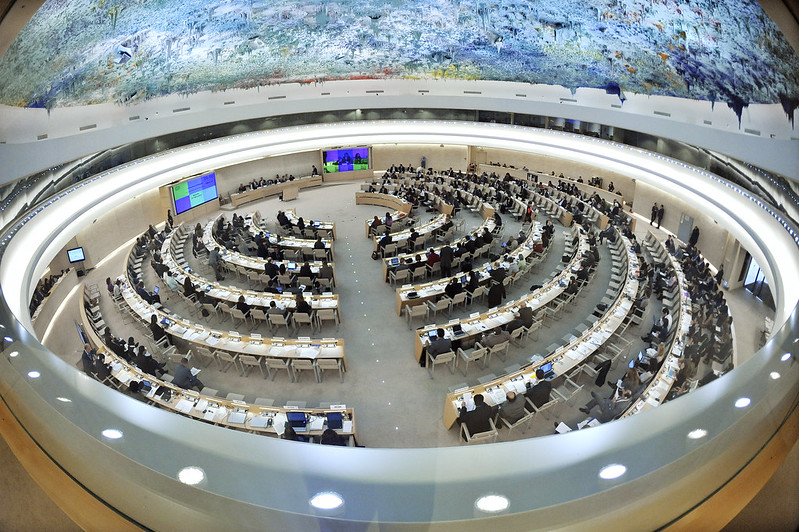At its 51st session, the UN Human Rights Council has taken the historic decision to establish a Special Rapporteur monitoring human rights compliance of a permanent member of the UN Security Council, the Russian Federation.
The Council also addressed human rights concerns in Afghanistan, Burundi, Ethiopia, Sri Lanka, Syria and Venezuela. It took important action in a number of thematic areas, notably in promoting the crucial role of rule of law and human rights while countering terrorism. However, once again the Council continued to allow power politics to prevent it from addressing some of the most dire human rights situations in China and in the Philippines.
The ICJ welcomes the historic decision of the UN Human Rights Council to establish a UN Special Rapporteur on the human rights situation in the Russian Federation. This is the first time that the Council has created an independent Special Procedures mandate to monitor the human rights performance of a permanent member of the UN Security Council. This mandate will provide a much needed international resource for civil society and victims of human rights violations, after the Russia’s departure from the Council of Europe and termination of the jurisdiction the European Court of Human Rights last month.
The ICJ regrets that a majority of the Council’s Member States did not have the courage to provide the required scrutiny to the human rights situation in Xinjiang. The Council rejected by the narrow margin of 19-17 (with 11 abstentions) a decision that would have allowed it merely to discuss the damning OHCHR assessment of serious human rights violations occurring against the Muslim Uighur and Turkic population in the Special Autonomous Region of Xinjiang. The ICJ commends the initiative and calls on all delegations to pursue further initiatives to ensure accountability for gross human rights violations in Xinjiang, that, as OHCHR reported, may amount to crimes against humanity.
We welcome the Council’s two-year renewal and strengthening of the OHCHR Sri Lanka accountability project, while regretting the compromise needed on the text of the resolution that failed to call for an immediate moratorium on Sri Lanka’s use of the Prevention of Terrorism Act (PTA), which remains an affront to the rule law.
We welcome the approval by a wide majority of the UN Human Rights Council of a resolution recognizing the horrific situation of human rights in Afghanistan, as well as renewing and strengthening the mandate of the Special Rapporteur on the country. It is unacceptable that repeated calls by the delegation of Afghanistan and civil society to establish a much needed international independent investigative mechanism on Afghanistan remain unaddressed. We call on all delegations to do more for accountability for gross human rights violations and breaches of international humanitarian law, including crimes under international law, especially the discriminatory, widespread and systematic persecution of women and girls in the country.
On Venezuela, the ICJ welcomes the renewal of the mandate of the International Fact-Finding Mission for a duration of two years, as well as the mandate of the Office of the High Commissioner for Human Rights in Venezuela. This decision was essential to ensure monitoring and documentation of serious human rights violations occurring in the country and to facilitate international accountability for such violations.
The ICJ welcomes the renewal of the mandates of the Special Rapporteurs and accountability mechanisms on Burundi, Somalia, Central African Republic, and the Democratic Republic of Congo. We deplore that fact that, despite the collapse of the truce in Yemen, the Council did not take the initiative to re-establish an effective accountability mechanism, and that it failed to renew its resolution on the situation of human rights in the Philippines.
We welcome the consensus approval by the Council of the resolution on terrorism and human rights, which has been strengthened to affirm the centrality of the rule of law and human rights to counter terrorism, international human rights obligations in transfers of terrorist suspects, profiling of individuals, detention, the right to a fair trial, the right to privacy and freedom of expression and other due process guarantees, and in relation to children rights and civil society.
Contact:
Massimo Frigo, ICJ UN Representative, e: massimo.frigo(a)icj.org, t: +41797499949




